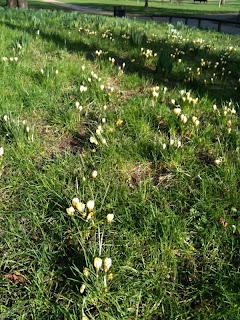 So there I was, getting on with writing my next novel and keeping my characters on track, or so I thought. But as we’ve discussed before on this blog, characters have a mind of their own, and my hero and heroine suddenly decided to write poetry to each other – just like that and without my permission! And not just any old poem either, but a Japanese haiku. Each. Great.
So there I was, getting on with writing my next novel and keeping my characters on track, or so I thought. But as we’ve discussed before on this blog, characters have a mind of their own, and my hero and heroine suddenly decided to write poetry to each other – just like that and without my permission! And not just any old poem either, but a Japanese haiku. Each. Great. As I think I mentioned when Liz did her excellent post about poetry a while back, I’m rubbish at writing it. In fact, I don’t seem to have a single poetic gene in my body. So I wasn’t best pleased with my characters, I can tell you. But then I thought – hang on a minute, haiku? Three lines, seventeen syllables, how hard can it be?
First, I needed a little bit of background. What is a haiku poem exactly? According to an excellent little book I bought at the British Museum, they’re normally made up of three phrases divided into one of five syllables, then one with seven, then another with five again. They can be quite informal, but usually highlight a special moment in someone’s life or the influence of nature. So far so good.
If you follow strict guidelines, there are three other main rules – the poem should only consist of essential words, it should have a seasonal reference (ie. you should be able to guess which season of the year the poem refers to and for the Japanese there are five of them, the fifth being New Year which is special), and it should contain a so called ‘cutting word’. This apparently “indicates a need for reflection or gives the poem a certain mood”. But these rules don’t necessarily have to be adhered to if you’re writing in English.
Here is an example of a proper one (according to Wikipedia supposedly the most famous haiku by a man called Basho):-
Old pond
A frog leaps in
Water’s sound
(You may be wondering where the seasonal reference is? Apparently in Japan frogs emerge into the paddy fields in spring. Who knew? And obviously it’s not 17 syllables in English because it’s translated from Japanese.)
If you’re interested, there are lots of other examples on the internet and elsewhere, but I thought I’d give you a good laugh by sharing some of my “experiments” (not the ones my characters wrote, I’ll save those for the book). Really, please feel free to laugh – I did! Here goes:-
Promising creamy petals
Silky on rough skin
The blossom of youth
Fading into the twilight
Like a misty breath
Fur, black and shiny
Canine enthusiasm
Wagging tail aloft
Ok, you get the picture – I’m useless at this! But I have to admit I had great fun trying, so I thought I would issue another challenge (similar to the one we had when this blog was newly started). Please, write a haiku poem and share it! Some of you might already have tried your hand at this and be extremely good at it, but even if you haven’t, don’t let that stop you. Just have a go - I look forward to reading the results!
And please come back on Sunday to hear from Liz

Here you go, then -- a Haiku of winter in Canada (because spring won't find us here for another month at least...):
ReplyDeleteThe sunrise reveals
rabbit tracks in soft new snow
My computer waits.
Can't wait to read the new book, by the way!
We hold a cold breath
ReplyDeleteWaiting on the first crocus
Mauve blooms burst: exhale.
Lovely one, Christina. :-)
Those are great! Next time I need one I'll know who to ask :) Green with jealousy here ...
ReplyDeleteThanks re: new book, Susanna, I'm waiting for yours!